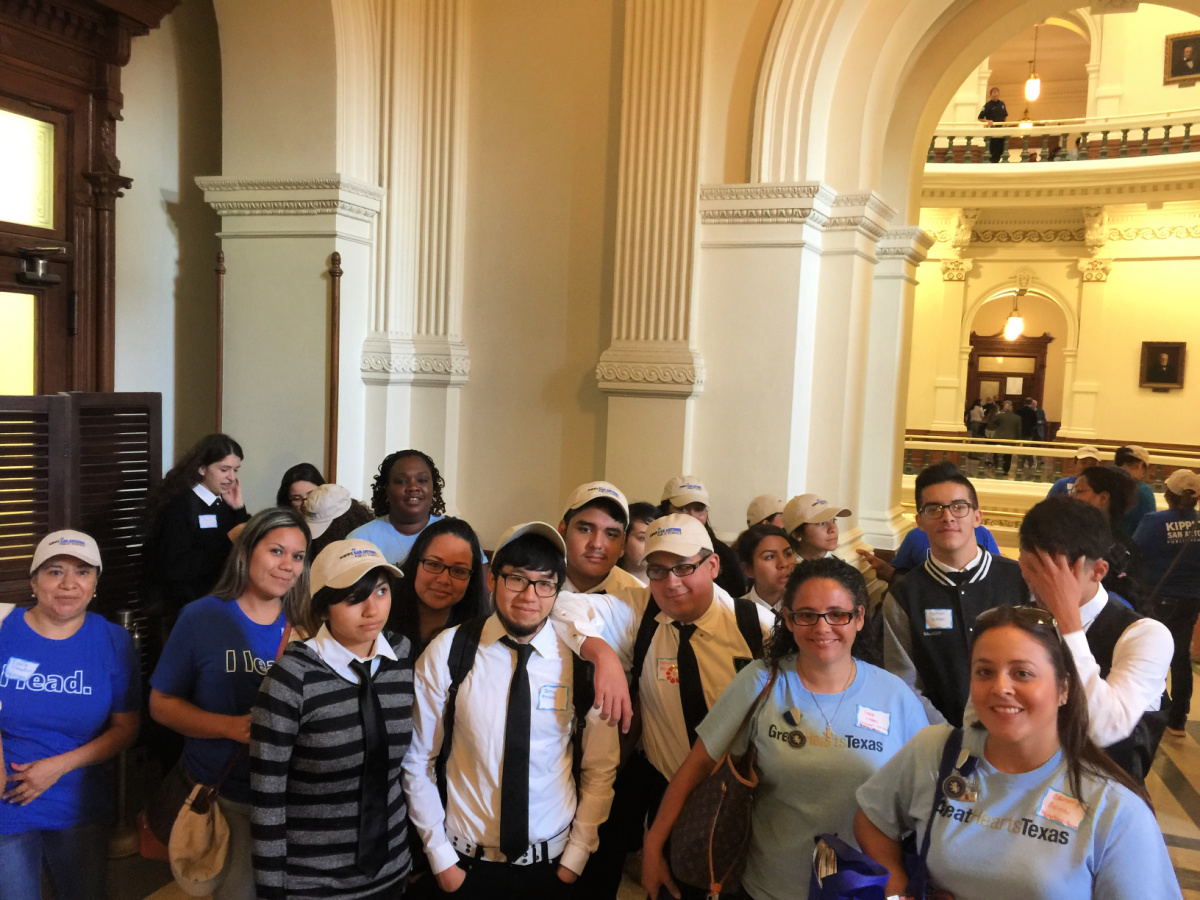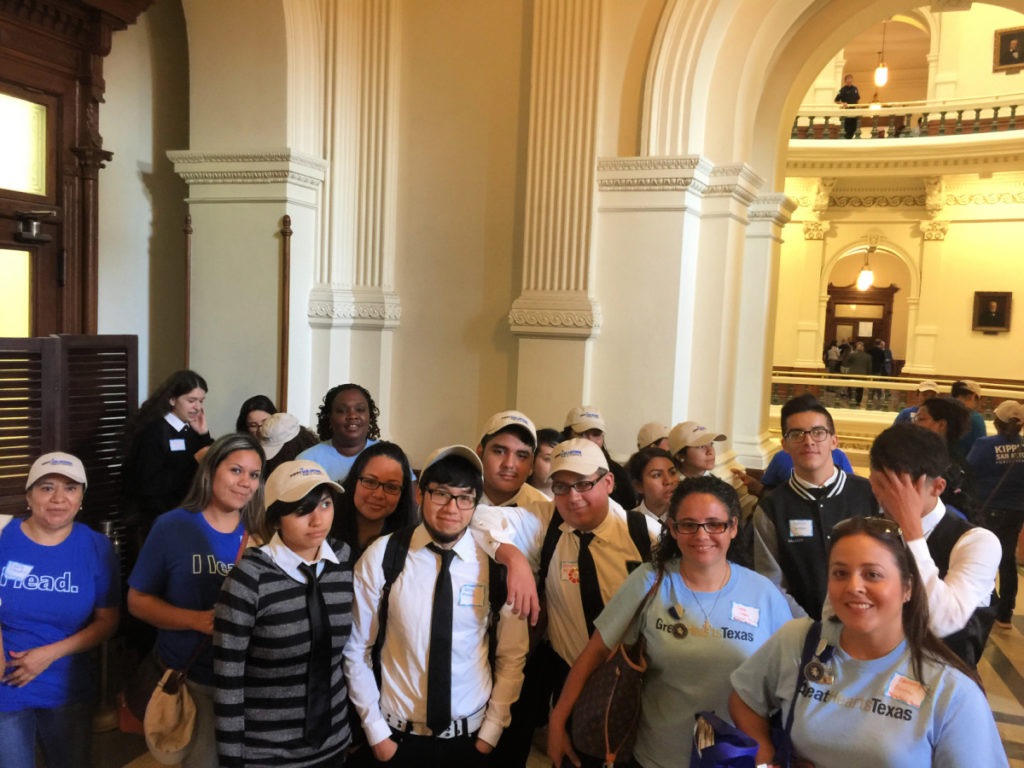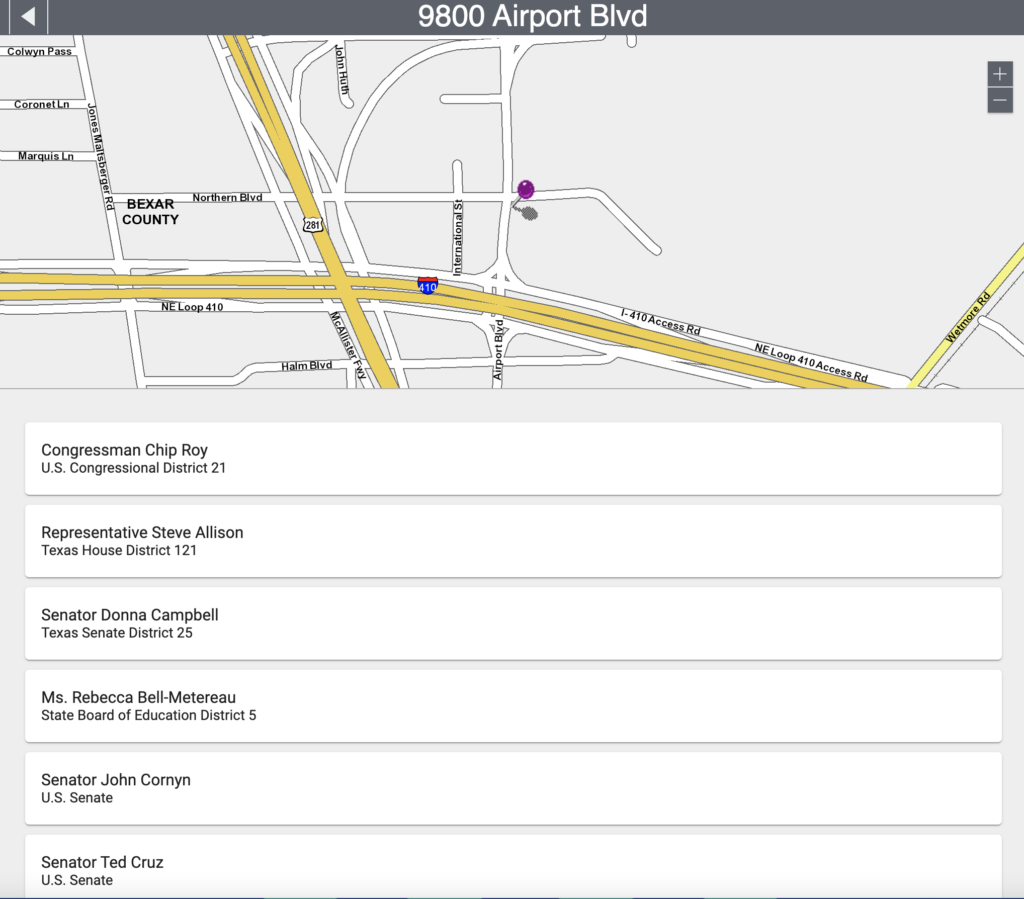When charter school parents have a concern about how our education system works, they ask, “How do I contact my elected officials?” When we observe an injustice, or when it seems like something is not right and we are looking for change, it’s the responsibility of our elected representatives to listen to their constituents and do something about it. In a recent post, we gave step-by-step instructions about how you can identify your elected officials, especially the ones with the greatest influence on education policy in Texas. This post will cover the next steps: how to contact and communicate with the elected officials and their staff members to get your message across. Our elected officials and their staff members may seem remote and distant, but they’re not—they live in our communities, and they are extroverts who enjoy hearing real life stories from the people they serve. It’s their job to listen to you and work for you, and you deserve some of their time.
This post is part of our ongoing Charters 101 series, providing clear explanations for charter school parents about how they can become stronger advocates for high quality education.
Contacting Elected Officials
The institutions that have the most influence over education policy are the Texas Senate and the Texas House of Representatives. The first step towards contacting your state representative and state senator is visiting the Texas legislature’s who represents me tool and entering your home address. There are step-by-step instructions in this post.
As an example, if you were standing in a terminal at the San Antonio International Airport, you would be located in these Texas legislative districts:
Meeting Elected Officials and Staff in Person
Each state senator or representative may have tens or hundreds of thousands of constituents living in their district, so it may take patience and determination to create an opportunity to meet with an elected official in person. Also, for the time being, the pandemic may limit in-person meetings with elected officials. Some are holding meetings over videoconference (e.g., Zoom) instead.
Elected officials want to stay visible to their constituents and share about their accomplishments in the legislature. To accomplish those goals, they may hold public events in their communities such as town hall meetings, panel discussions, and fireside chats. In addition, they may visit meetings hosted by community groups such as chambers of commerce and service organizations. Subscribing to elected officials’ email newsletters and social media feeds is a good way to find out when they will be hosting and attending events. For example, you can subscribe to Sen. Donna Campbell’s email newsletter on her campaign website, donnacampbell.com. Rep. Steve Allison’s campaign website is stevefortexas.com and you can subscribe to his email mailing list.
Texas legislators typically have two offices: one back home in their district, and one at the state capitol in Austin. Sen. Donna Campbell’s official website lists her district office at 229 Hunters Village, Ste. 105, New Braunfels, TX 78132 (map). That site doesn’t list the location of her capitol office, but the Texas State Preservation Board’s set of maps of the state capitol includes a Texas Capitol Building Directory, which lists Sen. Campbell’s office as being in the capitol at 3E.18 (map). The mailing address for all state senators is P.O. Box 12068, Austin, TX 78711.
According to Rep. Steve Allison’s official website, his district office is at 1635 NE Loop 410, Ste. 506, San Antonio, TX 78209 (map) and his capitol office is in the extension at E1.512 (map). The mailing address for all state reps is P.O. Box 2910, Austin, TX 78768.
An effective way to initiate contact with your elected officials is to invite them to visit your charter school. For more information about how to organize a campus visit, see Hosting Your Elected Officials, a toolkit in the advocacy resources provided by the Texas Public Charter Schools Association (TPCSA).
Email Communication with Elected Officials
Elected officials receive large volumes of emails, but a personal story can cut through the noise. When an issue is being hotly debated, such as around the time of a committee hearing or a vote, legislative staffers may tally the numbers of emails for or against a change in policy. Email campaigns can be especially effective when a group of parent advocates sends a mass of emails on an issue to a particular in a short period of time.
Sen. Donna Campbell’s official website and Rep. Steve Allison’s official website both contain electronic forms for submitting email messages. Although their email addresses are not listed on their official websites, it’s possible to guess them, because they follow a pattern: firstname.lastname@house.texas.gov or firstname.lastname@senate.texas.gov. So, Sen. Campbell’s email address is donna.campbell@senate.texas.gov and Rep. Allison’s is steve.allison@house.texas.gov.
Sometimes, email communication originates through a campaign organized by an advocacy organization, such as the Texas Public Charter Schools Association (TPCSA). These coordinated campaigns amplify the impact of individual student, parent, and teacher voices. To receive electronic alerts from TPCSA, sign up at txcharterschools.org.
Phone Communication with Elected Officials
Elected officials also receive a large volume of phone calls, but sometimes it only takes a few motivated parent advocates to bring attention to an issue. Think about how many people say, “I should make a call,” versus the relatively small number who actually do pick up the phone.
It’s rare for an elected official to actually pick up the phone themselves. Most likely, a staff member will pick up, or the call will go to voicemail—especially after business hours. As with emails, the staff may be tallying the number of calls for or against a change in policy during a time of heated debate. Nevertheless, there is always the possibility that a compelling, personal story will reach through and touch someone’s heart.
Sen. Campbell’s official website lists their Austin office phone number as 512-463-0125 and their New Braunfels office phone number as 830-626-0065. Rep. Allison’s official website lists their Austin office phone number as 512-463-0686.
Tagging Elected Officials on Social Media
Social media is a way for elected officials to highlight their achievements to the their constituents, and also an opportunity for citizens to talk back. Like signing up for email newsletters, it’s a good idea to follow your elected officials on social media and see what they are up to. Also, when you and your fellow parent advocates want to speak up against injustice and bring about change, you can tag your elected officials, and use hashtags strategically, to draw attention to your message.
Sen. Campbell has a presence on Facebook, Instagram, Twitter, and YouTube, while Rep. Allison has accounts on Facebook, Twitter, and YouTube.
Using hashtags can help your messages reach a targeted audience. News about the Texas legislature is often tagged #txlege, and education news is tagged #txed. A popular hashtag among Texas charter school advocates is #txcharterswork.
Effective Communication Strategies
Whether you are meeting an elected official or staff member in person, or crafting a message for email or social media, some basic principles will help you communicate more effectively: Stay grounded, keep it simple, and make it personal.
Stay Grounded
To stay grounded while advocating for a change in education policy, it’s important to understand the context and keep the objective in mind. Build up your knowledge of how our state government works. Joining the San Antonio Charter Moms discussion group on Facebook and following @sachartermoms on Twitter will help you stay up to date on education news. Talking it over with friends and fellow parent advocates will help you stay clear about your objective—the change you want to see in the world.
Be aware of the situation and how you can give back. Does the elected official have any questions about charter schools that you can answer? Be polite, and let them speak, too. After the interaction, be sure to write thank you notes.
Keep It Simple
Don’t feel like you have to know everything there is about charter schools and education policy. If you want a quick refresher, or a handout that you can share in a meeting, look at TPCSA’s fact sheets and one pagers, including this brochure about charter schools. A simple definition of charter schools is that they are creative and flexible schools that are free and open to everyone who wants to attend. You don’t need to rattle off all the benefits of charter schools—just focus on the aspects that have had the biggest impact on your family.
Make It Personal
The most important part of your interaction with an elected official will be the part you know best: Your own personal story. Why did you choose a charter school for your own family? How are your students benefitting from the unique programs offered at their charter school? Depending on what is relevant to your family, you might speak about one of these themes:
- Charter schools are able to prepare students for success in college and the careers of the future.
- Charter schools are meeting the specific needs of individual students.
- Charter schools can help bilingual students and English learners make academic progress.
- Charter schools are a place for special education students to meet their full potential as learners.
You are a constituent and your voice deserves to be heard. It may not happen right away, but by working together and being persistent, parent advocates can make contact with our elected officials and change education policy in Texas.
Now you know how to find out “Who represents me?” and “How Do I Contact My Elected Officials?” The next post in the Charters 101 series will go deeper into the topic of school finance—How are charter schools paid for? With these blog posts and events, we will help you become a stronger education advocate, and influence education policy in Texas to better serve students and families.
Read More About Charter School Parent Advocacy
- “Charters 101: Parents Ask, ‘How Are Charter Schools Paid For?'” San Antonio Charter Moms, August 19, 2021
- “Charters 101: Charter School Parents Are Asking, ‘Who Represents Me?'” San Antonio Charter Moms, August 5, 2021
- “Parent Perspectives: How Lety Gómez Became a Parent Leader,” Lety Gómez, San Antonio Charter Moms, May 18, 2021
- “Student Stories: Dariela Galindo, Sophomore at Travis Early College High School in SAISD,” Dariela Galindo, San Antonio Charter Moms, March 2, 2021
- “‘Never Too Old or Too Young to Learn’—Wendy Gonzales-Neal of My Child My Voice,” Wendy Gonzales-Neal, San Antonio Charter Moms, December 16, 2020
- “Teacher Tales: “You Are My Why” — Abel F. De Leon at the School of Science and Technology,” Abel F. De Leon, San Antonio Charter Moms, (reposted by Education Post), November 4, 2020
- “Raising Parents’ Voices for Change: Introducing Texas Families First,” San Antonio Charter Moms, August 19, 2020
- “Charters 101: Being a Charter School Parent Advocate — Founders Schertz Edition,” San Antonio Charter Moms, March 5, 2018




